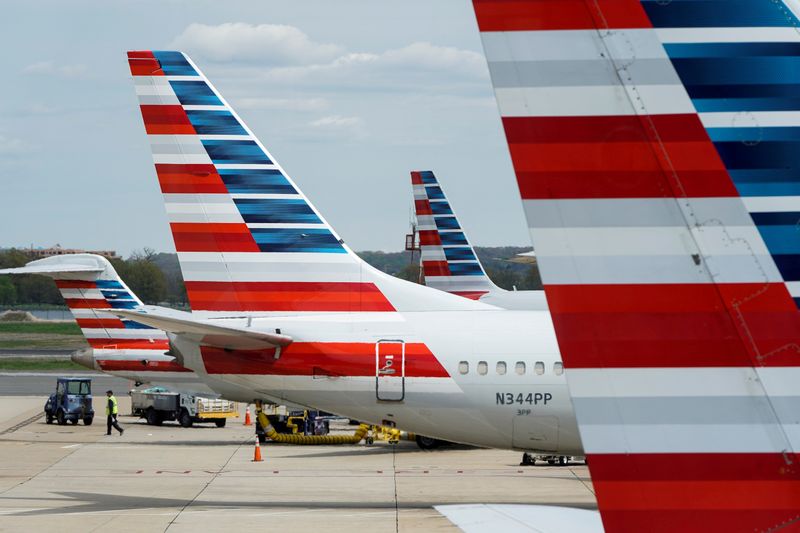By Andrea Shalal and Steve Holland
WASHINGTON (Reuters) - The Trump administration is urging U.S. lawmakers to pass separate bills to aid airlines and other sectors, given failure to reach agreement on a broader package of stimulus funding, White House Press Secretary Kayleigh McEnany said on Tuesday.
The U.S. Congress has been deadlocked over another round of economic stimulus aimed at blunting the effects of the coronavirus pandemic that has now killed over 200,000 people in the United States.
U.S. airlines, facing a huge drop in demand due to virus-related lockdowns, on Tuesday mounted a last-ditch bid to persuade Congress to approve a new $25 billion bailout to help avert thousands of furloughs set to begin Oct. 1.
Delta Air Lines (NYSE:DAL) has agreed to delay a decision on pilot furloughs until Nov. 1, the pilots union said on Tuesday.
Two key Republican senators this week introduced a bill that would authorize $28.8 billion in payroll aid for the airlines. But congressional aides say a stand-alone measure is unlikely to win passage given aid requests from so many other struggling industries.
McEnany said talks about a broader stimulus measure were continuing with House of Representatives Speaker Nancy Pelosi, and said the White House's agreement to accept a measure valued at $1.5 trillion could still lead to some progress.
In the absence of a bigger bill, she urged Pelosi to work on separate legislation to address the needs of airlines, which have warned that they will be forced to carry out mass layoffs unless they receive additional assistance.
"The onus is really on Speaker Pelosi, so we encourage her to send one-off bills, perhaps airline funding, or other elements that we could work through the process to get to the American people," she told a briefing at the White House.
Representative Hakeem Jeffries, a member of House Democratic leadership, said the House in mid-May passed a comprehensive $3.4 trillion coronavirus-response bill that the administration rejected, and said any bill had to be "a meaningful agreement."

"We can't have a cosmetic fake agreement. ... That's what the president wants, a fake agreement," he told a weekly briefing.